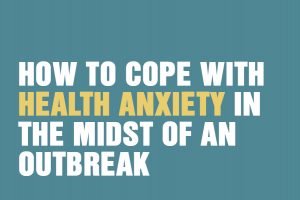According to UK government statistics, 42% of marriages end in divorce, with the most common age bracket being 45-49 years old. Furthermore, the same statistics predict that 60% of marriages are expected to end in divorce by the 20th anniversary. However, since 2000, the percentages of marriages ending in divorce appears to be falling. This is likely to be because couples are getting married later and are spending more time living together beforehand.
Living Through Your Parent’s Divorce
Getting divorced is one thing, but living through your parents’ divorce is a whole different story. If you are old enough to register what is happening, finding out that your parents are divorcing and then living through the aftermath can represent a turning point. It may sound strange, but through this process, you come to the realisation that your parents are not just your parents; they are their own people, with their own needs, wants, and desires.
This is a pivot that you go through at any age when your parents’ divorce, whether you are 8 years old, 18 years old, or 38 years old. Rather than focusing on raising kids, planning family holidays, creating a nice home, they are suddenly fighting, looking for their separate homes, possibly introducing new partners, and creating new lives for themselves.
Often, it is not your parents’ divorce or separation itself that has the biggest impact, but the changes that come with it. Especially for children, having less contact with one parent, possibly moving house or even school, living with a single parent, and financial hardship can bring about feelings of anxiety, uncertainty, and upset.
For adult children of divorce, there are some logistical stresses to contend with such as organising family events (two Christmas’s or even four if your partner’s parents are also divorced), becoming a messenger between parents, or even confidant or referee when one or both parents are struggling.
The Impact of Divorce on Kids
Divorce can have physical, emotional, and academic impacts on children. For example, research published in the Social Service Review (2011) showed that children whose parents have divorced are more likely to experience injury, asthma, headaches, and speech impediments than children whose parents have remained married.
Emotionally, divorce has the potential to leave an imprint on children well into adulthood. Research conducted by the University of Toronto found that men from families that divorced during their childhood were more than three times as likely to consider suicide than men whose parents never divorced. Meanwhile, women whose parents divorced during their childhood were 83% more likely to experience suicidal ideation than women who had never experienced divorce as a child.
Academically, research in the American Sociological Review showed that children in situations where their parents had been involved in multiple divorces earned lower grades than their peers, and their peers rated them as less pleasant to be around.
However, it is worth remembering that these studies don’t show that parental divorce directly caused these effects, just that they correlated.
Tips for Surviving
- Don’t take sides. It can be very easy to be drawn into arguments between parents and, as mentioned above, to become a messenger or go-between, or even a confidant. However, you must remember that you are their child, not their therapist, friend, or mediator. You can listen to both parties but try not to take sides in an argument. This is between them, not you and them.
- Take time for yourself. Living with parents who are going through the process of divorce or who have recently divorced can feel very intense and all-consuming. Be sure to take regular time-outs to see your friends, take part in hobbies, and relax. Being there for a parent who is going through a divorce can take a lot out of you and it is important that you take time to recharge.
- Focus on you. As mentioned, going through a parents’ divorce can feel all-consuming, and you may find yourself focusing on making sure one or both parents are okay and supporting them through any rough patches. However, it is important to focus on your own needs as well. You might feel angry, upset, or confused, and these are all valid emotions. Take the time to grieve for the family unit that you once had, and to adjust to this new normal. This is where counselling can come in, helping you to take the time to process and re-adjust.
- Stay healthy. It can feel like an easy option to numb yourself with over-eating, under-eating, drinking, online shopping, and many other numbing techniques. The more willing you are to experience and feel the sadness and loss, the more quickly you will be able to find your footing. Again, counselling can be of great help through this process, giving you a safe space to really process what has happened.
If you’d like to process your feelings about divorce or family separation with an experienced therapist, then get in touch. We have sessions available seven days a week at our Clapham and Tooting centres. Contact our team by calling 020 8673 4545 or emailing [email protected].








